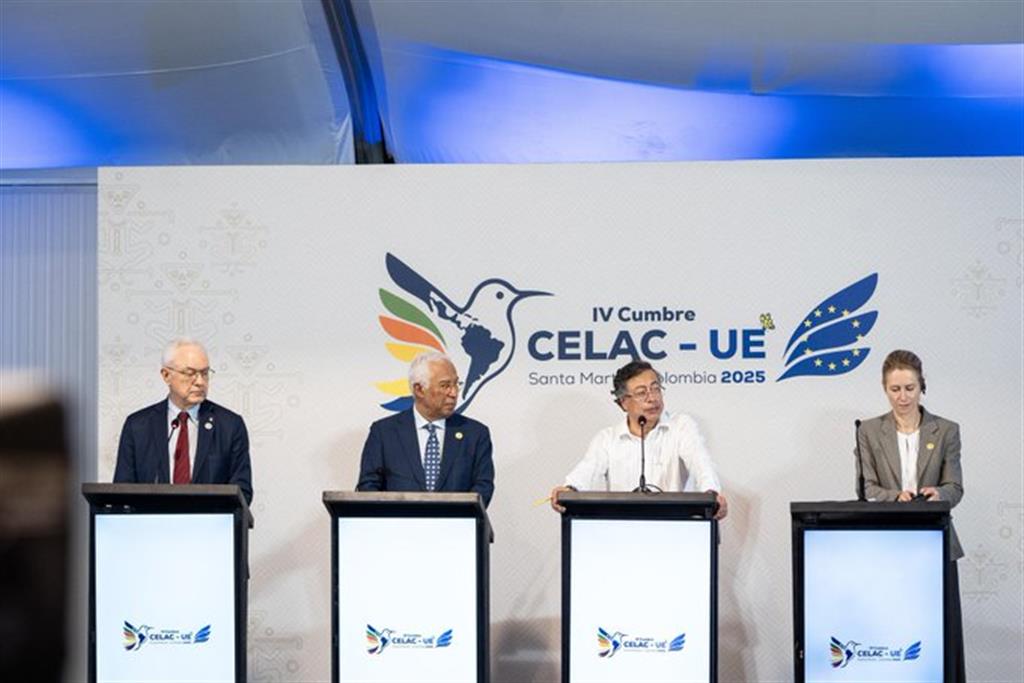The lifting of the blockade imposed by the United States on Cuba was demanded in the Joint Declaration issued after the debates of the IV Summit between the Community of Latin American and Caribbean States (CELAC) and the European Union.
The document, which contains 52 points and covers various subjects, was adopted after a long day of work by more than 60 delegations attending the event, which will conclude tomorrow at the Estelar Santamar Convention Center.
The Declaration states that the countries that supported United Nations General Assembly Resolution A/RES/80/7 of October 29, 2025, reiterate the need to end the economic, commercial, and financial embargo imposed against Cuba, as well as their opposition to laws and regulations with extraterritorial effects.
The declaration also acknowledged that the designation of the Caribbean nation as a state sponsor of terrorism, and its continued inclusion on that list, has created obstacles to international financial transactions with the island.
During his speech at the summit, Cuban Vice President Salvador Valdés highlighted the stance of the majority of countries present at the meeting, who, despite enormous pressure, demanded an end to the blockade imposed by Washington at the United Nations.
“We appreciate the condemnation of the arbitrary decision to include us again on the fraudulent and unilateral list of supposed state sponsors of terrorism,” he exclaimed.
He stated that the strategies of economic strangulation, blackmail, and media manipulation employed by the United States government against the island were exposed, including the slanderous attempts to discredit the altruistic work of Cuban medical collaboration.
The Fourth Summit between the Community of Latin American and Caribbean States and the European Union also addressed other issues related to the reform of the international system. Trade and investment; climate, environment, energy transition, cooperation on citizen security, justice, and the fight against transnational organized crime.
The agreed-upon areas of work also include food security and health; digital transformation; social inclusion and care systems; education and research; migration and care among peoples; and culture.
In their assessment of the day’s events for the press, the President of Colombia, Gustavo Petro, and the President of the European Council, António da Costa, both described the meeting as a success.
[ SOURCE: PRENSA LATINA ]

